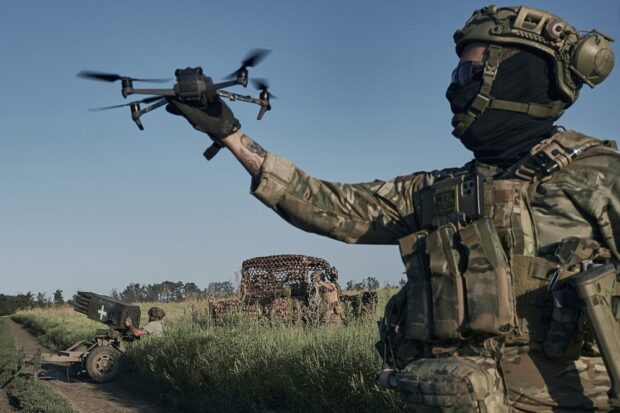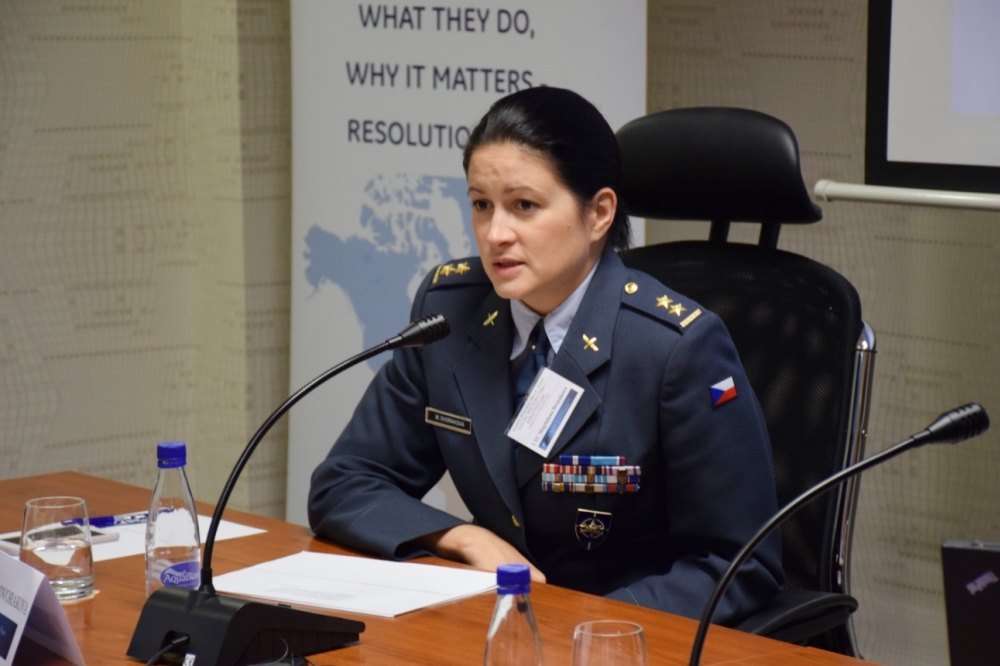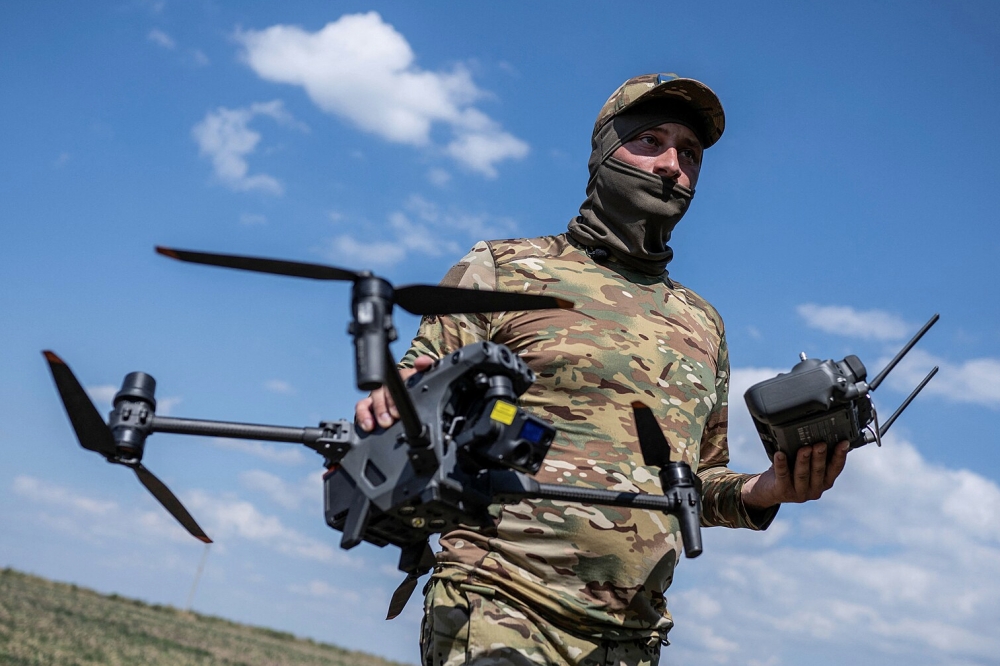The Czech Republic is planning to equip ground units with small FPV drones for reconnaissance and strikes. The new Concept for the Construction of the Army of the Czech Republic (KVAČR) was approved in February of this year, however, there is little and vague talk about the massive deployment of drones and protection against this technology. That has now changed.
The war in Ukraine is a battle of technology and, above all, of unmanned vehicles. The Czech army is also aware of this and therefore plans to use small drones for soldiers in the field and not just for special forces and paratroopers. It has therefore started experimental training courses and plans a massive deployment within three years. An integral part will also be the protection of existing and future military equipment against these means.
The reason is not only the conflict in Ukraine, but also the involvement of the top military in an initiative that supplies this attacked country with thousands of small, so-called FPV (first person view) drones. They are assembled in the Czech Republic from parts that come mainly from Asia. The machines are compact, about thirty centimeters in size
“The final assembly takes place in the Czech Republic. We verified that we are able to produce all the components, but it would not be economically viable, so we import some things from Asia,”
Milan Mikulecký, co-founder of the D Group association, explained the details of the production.
Helping Ukraine Opened the Army’s Eyes
The Czech army will follow the same path.
“Thanks to Ukraine’s help and the supply of these drones, we are also gaining the necessary know-how for our own army,”
said its head, General Karel Řehka, who is the honorary chairman of the aforementioned association.
The military’s original plan was to purchase large reconnaissance and attack drones. The army reconsidered that.
“Today, it is completely normal for fifteen-year-old children to fly drones and our soldiers at basic tactical levels, those soldiers who would be somewhere on the front line in the event of a conflict, do not have the opportunity to look behind the house or the hill that is in front of them. We evaluated that it must change,”
explains General Roman Hyťha, director of the army’s intelligence security section.
Therefore, the soldiers will soon buy hundreds of small drones, which will be used across the army.
“We are working intensively on the acquisition of especially small multicopters to obtain immediate situational awareness at the lowest levels of command. Such changes require extensive preparations, including the organization of courses. Therefore, unlike the specialists of the 533rd Unmanned Aerial Vehicles Battalion, the use of drones by other types of troops will be a secondary task. Our intention is to include drones in the arsenal across all units of the army. Everything is being prepared now,”
said army spokeswoman Colonel Magda Dvořáková.
She further mentioned that earlier the use of drones was the domain not only of the 533rd Battalion, but also of the 601st Special Forces Group and the 43rd Parachute Regiment.
“In the last two years, there has been a significant increase in the importance of the use of various types of unmanned vehicles. Previously focused on specific units, today drones also reach foot soldiers,” said Dvořáková.
Experimental Training for Attack Drones
FPV drones will also be used by soldiers as offensive, i.e. armed. Probably carrying explosives like in Ukraine. Soldiers are already training for this use.
“Experimental training courses for small tactical attack FPV drones are currently underway with selected units. We expect their early involvement. The army is also interested in so-called loitering weapons, i.e. suicide drones, within a three-year horizon,”
added the army spokeswoman.
The soldiers should get this technique, which has not been used in the army until now, in the near future, and that from Israel. There, the army also asked for Heron drones for more than two billion crowns, of which it was eventually sold.
“I can confirm that negotiations are underway with a specific supplier of standby ammunition systems, but we are bound by commercial confidentiality. The intention of the army is to purchase ten sets of this ammunition and over two hundred missiles, including practice ammunition,”
said Lieutenant Colonel Vlastimila Cyprisová.
Despite the fact that she did not mention the supplier, there is speculation about the manufacturer UVision from Israel, which has a joint venture with the Rheinmetall arms company from Germany (for example, it participates in the production of Leopard tanks, which is also used by the AČR, editor’s note) .
Its Hero series, specifically the Hero 120 model, meets the requirements of the Czech army. The same type was purchased by Hungary last year. For 40 operator sets and 400 missiles, they paid 140 million euros, i.e. roughly 3.5 billion crowns.
Strengthening the Protection of Military Equipment
The army is counting not only on the deployment of drones and suicide munitions, but also on protection against these means, which at relatively low costs are capable of decimating expensive armored equipment.
“Protection against unmanned vehicles is a complex problem that requires modification of tactical and operational procedures, as well as camouflage, use of deceptive targets, advanced detection and so on. We conduct analyzes on an ongoing basis, for example during last year’s experimental Drone Shield exercise. Some protection solutions are available to the army and are also being considered in future projects when purchasing new equipment. We know the capabilities of our potential adversary and therefore the intention is to strengthen this protection even more,”
added Dvořáková in conclusion.
She did not provide further details, citing security.
Source: iDNES.CZ



